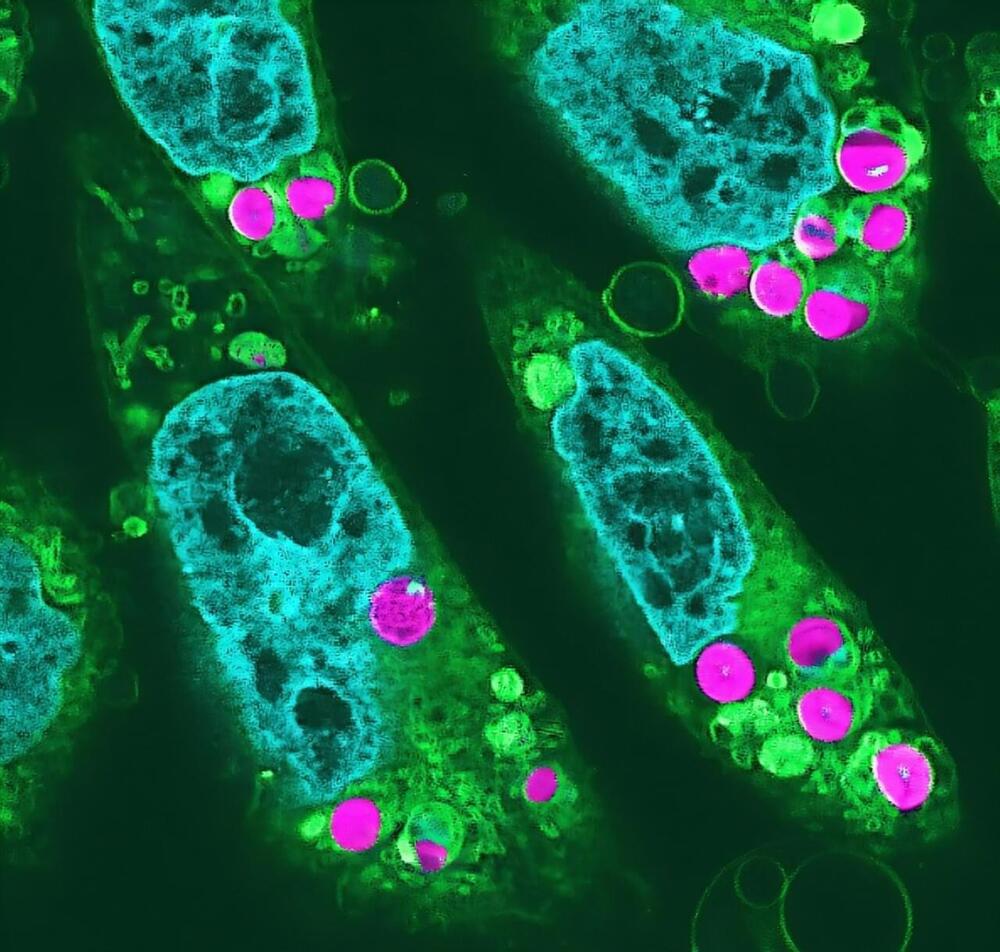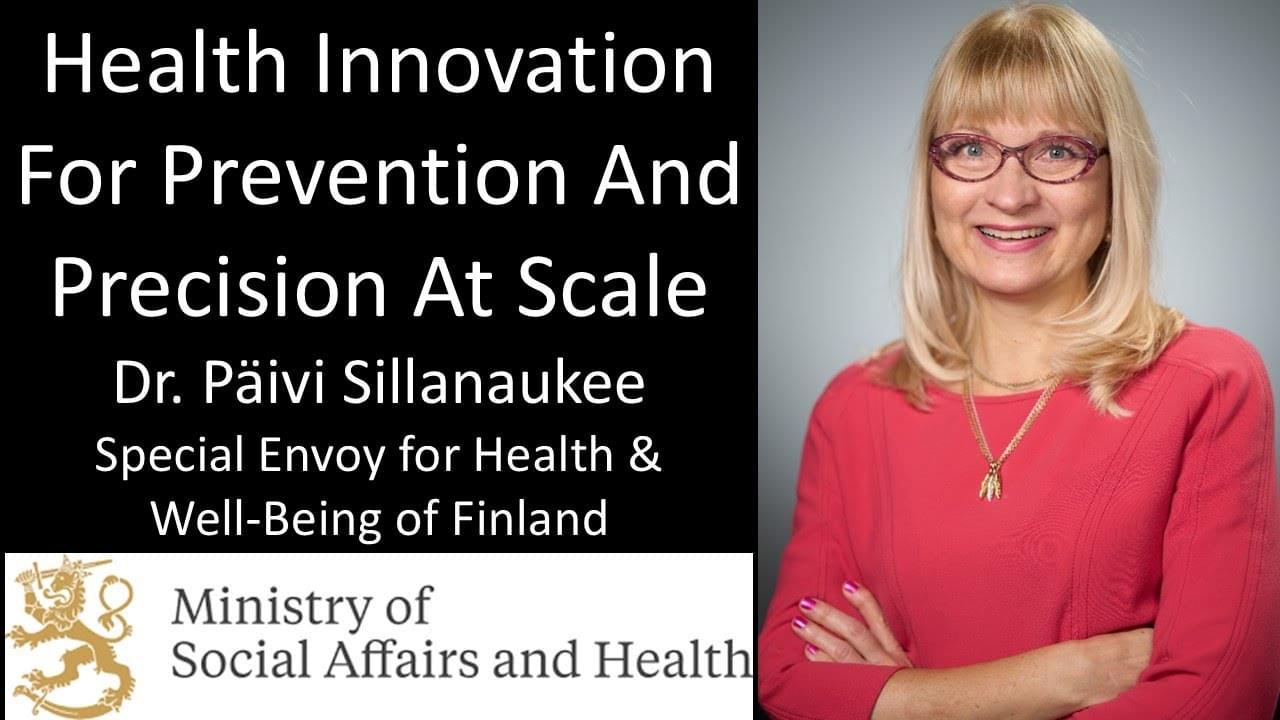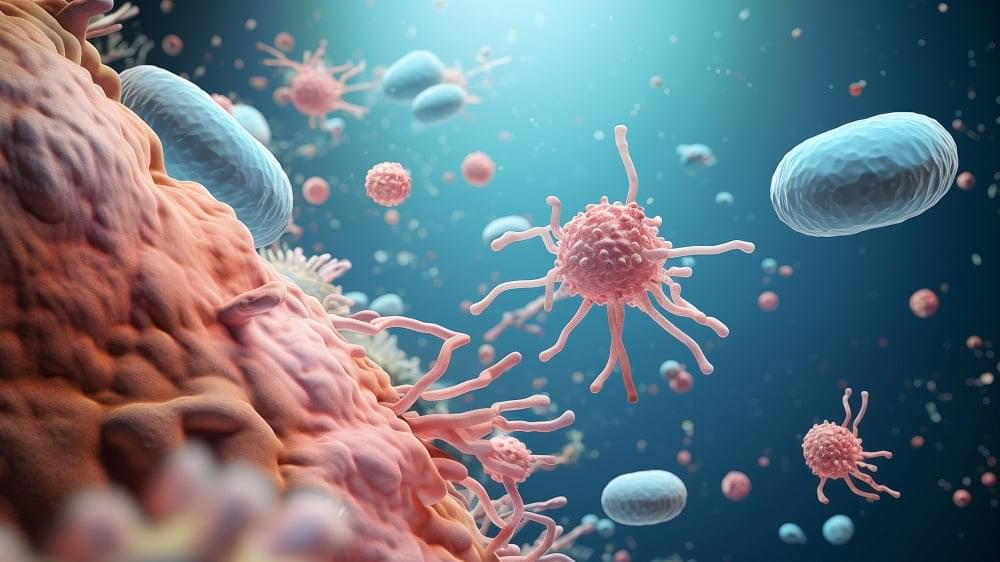Nov 7, 2024
Animal cells capable of photosynthesis created for the first time
Posted by Genevieve Klien in categories: bioengineering, biotech/medical
In an incredible feat that redefines biological boundaries, scientists have successfully engineered animal cells capable of photosynthesis.
This breakthrough, led by Professor Sachihiro Matsunaga at the University of Tokyo, could transform medical research and aid in advancing lab-grown meat production.
Photosynthesis, traditionally exclusive to plants, algae, and certain bacteria, is a process that uses sunlight, water, and carbon dioxide to produce oxygen and sugars – essentially “feeding” the organism.

















